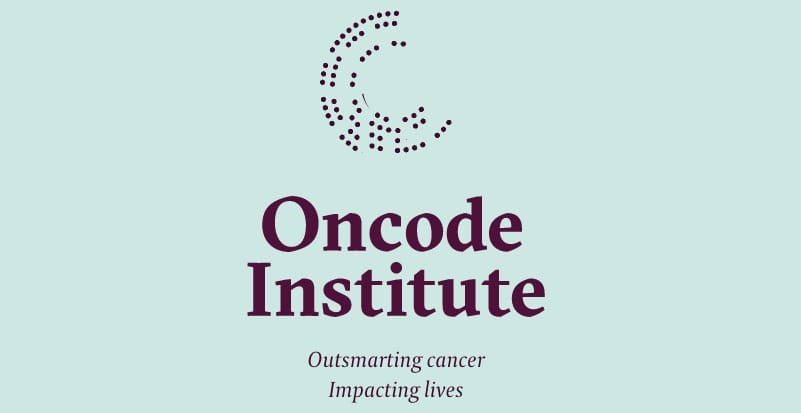
Oncode Institute breidt uit met het aanstellen van zeven talentvolle jonge vrouwelijke onderzoekers
ArrayOncode Institute breidt uit met het aanstellen van zeven talentvolle jonge vrouwelijke onderzoekers
Oncode Institute gaat uitbreiden. Zeven talentvolle vrouwelijke wetenschappers zijn geselecteerd om als Junior Investigators aan te sluiten bij Oncode. Ze zijn op basis van hun track record, onderzoeksgebied en hun potentiële bijdrage aan de missie van Oncode geselecteerd uit een totaal van 56 ingediende voorstellen. “Wij hebben de ambitie om nieuwe manieren te vinden om kanker te diagnosticeren en te behandelen, gebaseerd op baanbrekend onderzoek in het lab”, zegt Geert Kops, Scientific Director van Oncode Institute. “Na onze lancering eerder dit jaar zijn we aan de slag gegaan om onze community uit te breiden, zowel op het gebied van wetenschappelijke en technologische expertise als op het gebied van diversiteit.” Met deze uitbreiding verwelkomt Oncode ook Universiteit Leiden en Amsterdam UMC – locatie VUmc als nieuwe partner instituten.
Vrouwelijke onderzoekstalenten bij Oncode
The laureates and their programmes
G-protein coupled Receptors in cancer
Dr. Laura Heitman – Leiden Academic Centre for Drug Research (LACDR), Leiden University
Although it is clear that G-protein coupled receptors (GPCRs) have a role in cancer, little is known about the mechanisms they are involved in. Dr. Laura Heitman aims to identify and understand the role of GPCRs in modulating the tumour microenvironment and in intrinsic tumour signalling. This may eventually allow the identification of druggable targets. Well embedded in the LACDR, Dr. Laura Heitman brings her expertise in molecular pharmacology and medicinal chemistry into the Oncode research community.
Macrophage dynamics in cancer treatment
Dr. Leila Akkari – Division Tumor Biology & Immunology, Netherlands Cancer Institute
Cancers evolve within complex tissue microenvironments that can influence multiple stages of the disease. The focus of the research of Dr. Leila Akkari is centered around how microenvironment components, such as tumor-associated macrophages and their molecular mediates, fuel cancer progression and impact on cancer recurrence after treatment. The Selection Committee highly valued the translational outlook of Dr. Leila Akkari’s research, which bridges fundamental research with the clinic.
Single cell technology for cancer diagnosis and treatment
Dr. Miao-Ping Chien – Department of Molecular Genetics, Erasmus MC
The identification and isolation of cancer stem-like cells is of major importance because of their central role in tumor metastasis and treatment resistance. It is Dr. Miao-Ping Chien’s goal to investigate underlying mechanisms of formation of cancer stem-like cells using cutting edge optical, biochemical and computational techniques. “Oncode will provide me with resources in every aspect of my research, ranging from access to tumor samples and immense bioinformatic resources to early input on needs in clinical practice and valorization support”, according to Dr. Miao-Ping Chien.
Understanding transcription dynamics in single cells
Dr. Tineke Lenstra – Division gene regulation, Netherlands Cancer Institute
It is known that heterogeneity in transcriptional responses is increased in tumor cells, however the mechanisms remain elusive. Dr. Tineke Lenstra will use state of the art single-cell imaging approaches to understand the mechanisms of gene expression regulation in tumor cells. By studying transcription dynamics in single cells, we aim to understand how the molecular mechanisms of transcription regulation affect cell fate decisions and contributes to cancer progression.
Bridging fundamental BRCA1 research & the clinic
Dr. Sylvie Noordermeer – Department of Human Genetics, LUMC
BRCA1 is known to maintain genomic stability and BRCA1 mutations are directly linked to familial cases of breast and ovarian cancer as well as sporadic cancers of various origin. Despite decades of research, the mechanistic role of BRCA1 in maintaining genomic stability remains poorly understood. Dr. Sylvie Noordermeer works towards understanding BRCA1 function to improve treatment of BRCA1-mutated tumours. The selection committee highly valued Dr. Noordermeer’s clear research focus in which she combines fundamental research with a translational twist.
Visualizing the unexpected!
Dr. Anne Rios – Pediatric Oncology, Princess Maxima Center
Dr. Anne Rios focuses on investigating the cellular dynamics which govern pediatric cancer progression. Using cutting edge imaging technologies, Dr. Rios can visualize intact organs and tumours in 3D as well as biological samples on sub-cellular resolution. Her group is using these techniques to decipher the cellular and molecular mechanisms involved in pediatric cancer initiation and progression. “Becoming part of Oncode will enable us to obtain maximum scientific and financial support which is essential to build and fully support a team of experts in order to achieve greater science” says Dr. Rios.
Finding better therapies to improve life of patients with gastro- esophageal cancer
Sarah Derks MD PhD – Amsterdam UMC-VUMC
Gastroesophageal cancer is a devastating disease with poor outcome and minimal treatment options. While incidence rates are on the rise, the biological foundation of the disease is relatively understudied. Within her research Dr. Sarah Derks aims to identify drivers of the disease in a metastatic setting and the mechanism behind exclusion of the immune system in these tumours. In her unique position as a physician-scientist, Dr. Derks is determined to bridge the gap between clinic and laboratory and build strong collaborations within Oncode Institute.